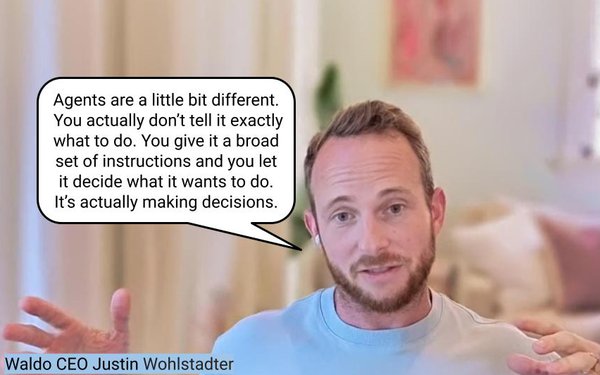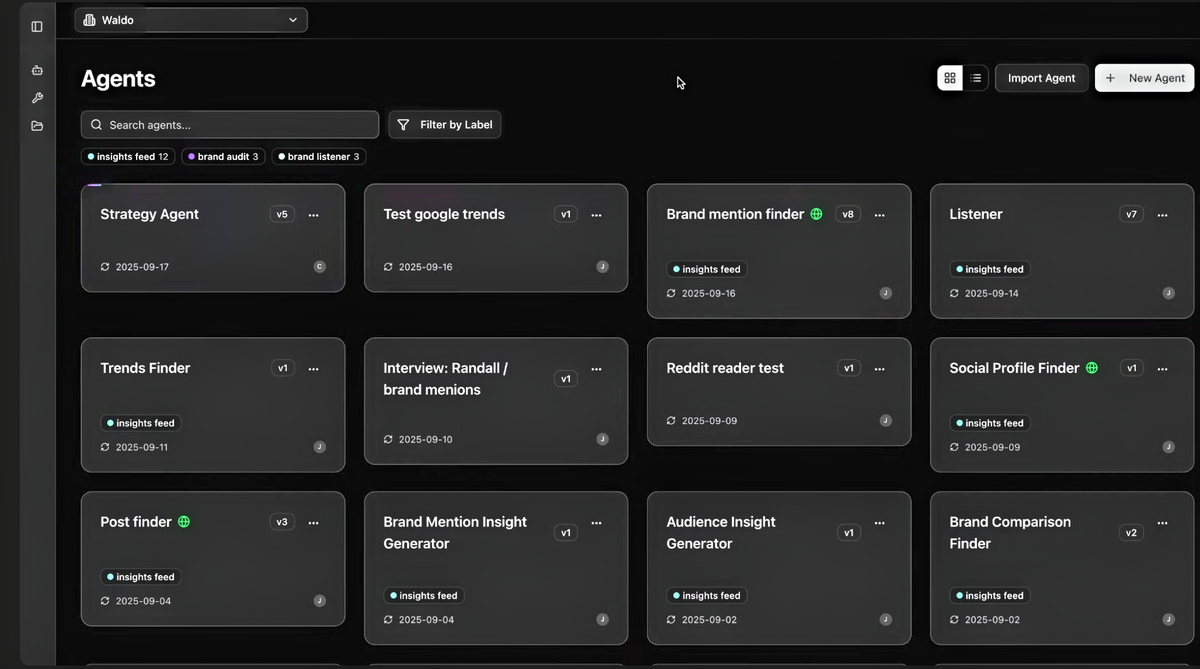
I recently wrote a column about the concept of "vibe planning," which is about how media planners and buyers are beginning to use
new generations of AI-powered planning tools to compress some of the time-consuming steps involved in media planning to a fraction of what the human teams could do, or even better, to generate new
ways of thinking about the elements of planning.
Now I'd like to talk to you about the concept of "vibe strategy," which enables agency strategy teams -- or in some cases, clients themselves --
to utilize new strategy planning tools in a similar way.
The concept comes from the notion of "vibe coding," in which AI code-writers do the heavy-lifting, but humans tell them what they would
like them to do.
advertisement
advertisement
One of the companies paving the way to vibe strategy is Waldo, an AI developer most people on Madison Avenue probably have never heard of, but which already is being used by
big agency holding companies, independent agencies and some clients themselves.
This morning, Waldo is announcing two pieces of news, including a new $10 million round of venture funding, and
a new "3.0" agentic version of its platform.
The initial versions of Waldo were basically buckets of pre-programmed AI-powered workflow enabling strategy teams to leverage automation to
quickly create a wide range of brand, creative, audience and media strategies on-the-fly -- like turning a client brief into a creative brief, or building a brand's audience profile or those of their
competitors.
Instead of users creating prompts to activate these workflows, Waldo 3.0 has gone agentic -- meaning it will proactively think of new strategies in response to something
developing in real-time, like breaking news mentioning a brand or its competitors, or something going viral on social media -- and will proactively alert an agency's or client's strategy team directly
and tell them what to do about it.
It's not quite the agentic AI vision some experts think we're moving to, in which an AI agent sits within the strategy team itself, scanning events in
real-time and prompting humans on the team to respond and generate new strategies alongside them, but it's a material step in that direction.
"Imagine you had a little assistant
sitting on your desk who happens to be online 24/7 and consuming everything about your brand, thinking about it and coming up with new strategies when something happens," explained Waldo CEO
Justin Wohlstadter during an exclusive briefing late last week.
While Waldo's initial workflow solutions have gained some traction -- the company claims it already influences
strategy for about 10% of global ad spending, including most if not all of the major agency holding companies -- Waldo 3.0 is an evolution that enables agencies and brands to create their own AI
agents to assist them on virtually any area of strategic planning and implementation.
"Agents are a little bit different," Wohlstadter said, "You actually don’t tell it exactly what
to do. You give it a broad set of instructions and you let it decide what it wants to do. It’s actually making decisions."
Wohlstadter gave me a first look at the version, including its
"agent builder" (see screenshot below), as well as use cases for building agents capable of tackling any component of brand strategy from brand audits to social listening to customer journeys,
including their explicit media journeys.
It's the next step in a rapid acceleration of the evolution of AI on the advertising business, which already has been impacted in terms of planning and
buying, creative ideation and generation, and is now on the cusp or transforming the very soul of the advertising process: strategic thinking.
Importantly, the new agent building tool is
available to anyone -- not just big agency holding companies, but smaller, independent agencies and clients themselves, which over time will give everyone the chance to have the same AI super power as
everybody else.
I wonder what Waldo thinks about that.
